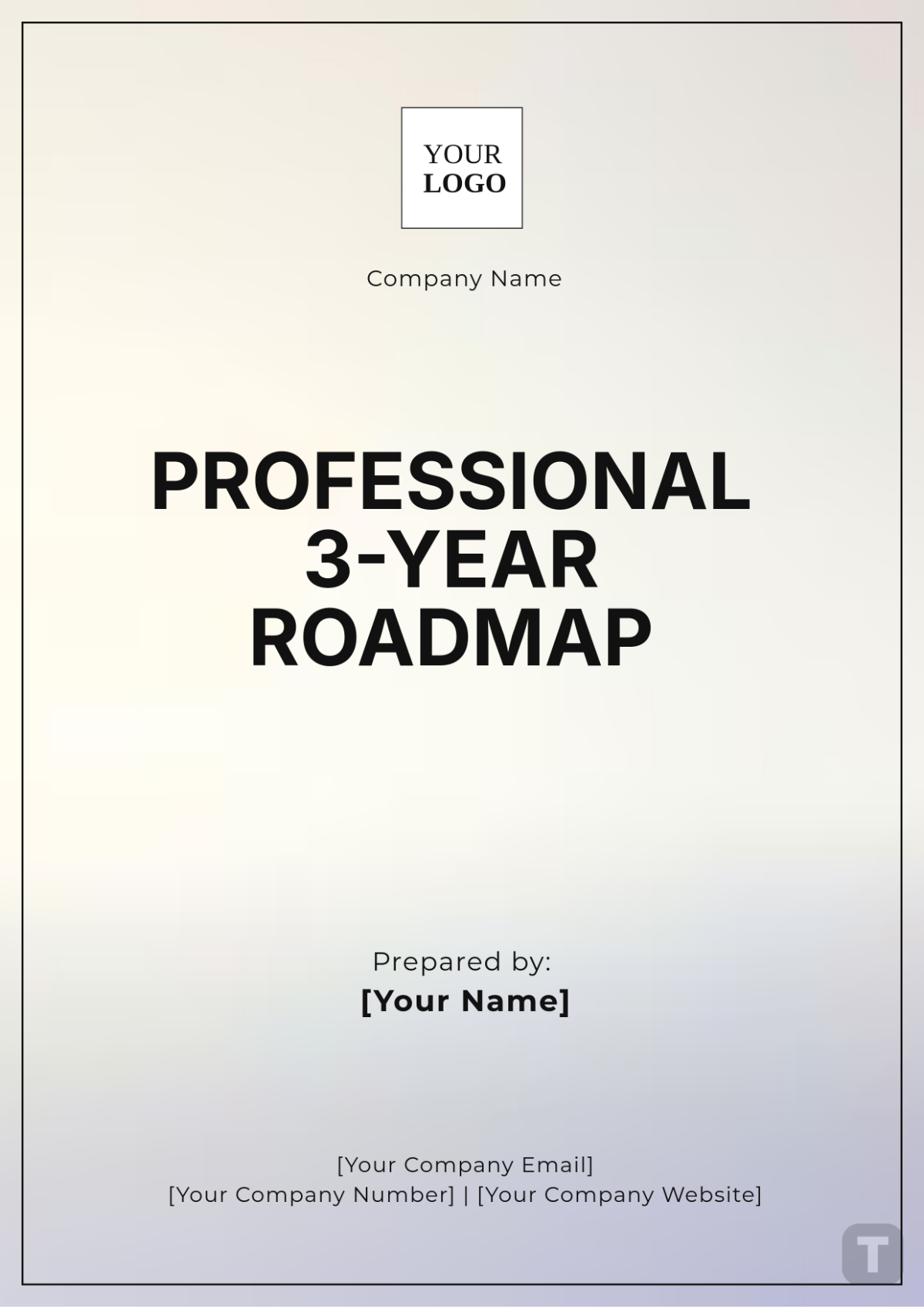Free Professional 3-Year Roadmap

- 100% Customizable, free editor
- Access 1 Million+ Templates, photo’s & graphics
- Download or share as a template
- Click and replace photos, graphics, text, backgrounds
- Resize, crop, AI write & more
- Access advanced editor
The Professional 3-Year Roadmap Template from Template.net is an editable and customizable tool designed to help you plan your business goals. Fully editable in our AI Editor Tool, this template offers flexibility and clarity for mapping long-term objectives. Save time and ensure professional-quality results with this easy-to-use resource.
You may also like
- Project Roadmap
- Security Roadmap
- Product Roadmap
- Personal Roadmap
- Employee Roadmap
- Career Roadmap
- Business Roadmap
- Strategy Roadmap
- Timeline Roadmap
- Management Roadmap
- Software Roadmap
- Technology Roadmap
- Process Roadmap
- Goals Roadmap
- Website Roadmap
- Sales Roadmap
- Quality Roadmap
- Company Roadmap
- Communication Roadmap
- Application Roadmap
- Training Roadmap
Professional 3-Year Roadmap
I. Introduction
This strategic roadmap outlines a comprehensive plan for professional growth and career development over three years. It provides a structured approach to skill enhancement, networking, and the achievement of career milestones, ensuring continuous progress and adaptation in an ever-develop professional landscape.
II. Year 1 - Foundation Building
A. Skill Development
The first year focuses on establishing a solid foundation of skills essential for your career path.
Identify Key Skills
Research and list key skills required for your role and industry. Consider both technical and soft skills that are critical for success.Enroll in Courses and Certifications
Select relevant courses and certifications that align with your career goals. Consider options from recognized institutions or online platforms that offer flexibility and industry relevance.Regular Practice and Self-Study
Allocate dedicated time each week for practice and self-study. Use resources like online tutorials, textbooks, and practical exercises to reinforce learning.
B. Networking
Building a robust professional network is crucial for career advancement.
Attend Industry Conferences and Workshops
Participate in key industry events to meet professionals, learn from experts, and stay updated on trends.Join Professional Groups
Engage in relevant LinkedIn groups and professional organizations. Actively participate in discussions and share insights to establish your presence.Connect with Industry Leaders and Peers
Reach out to industry leaders for informational interviews. Cultivate relationships with peers to share knowledge and resources.
C. Performance Evaluation
Regular evaluation of your performance helps track progress and identify areas for improvement.
Request Feedback
Seek constructive feedback from supervisors and colleagues to gain diverse perspectives on your performance.Set Short-Term Goals
Establish clear, measurable short-term goals to monitor achievements and stay motivated.Reflect on Growth
Take time to reflect on both personal and professional growth at the end of each quarter. Adjust your strategies based on insights gained.
III. Year 2 - Expansion and Exploration
A. Advanced Skill Acquisition
In the second year, focus on enhancing existing skills and acquiring advanced knowledge.
Specialize in a Niche Area
Identify a specific niche within your field that interests you and pursue advanced training or certifications in that area.Attend Advanced Workshops
Participate in specialized workshops and webinars that offer deeper insights and hands-on experience.Collaborate on High-Level Projects
Seek opportunities to work on projects that challenge your skills and allow you to collaborate with experienced colleagues.
B. Leadership Development
Cultivating leadership skills prepares you for future roles and responsibilities.
Lead Team Projects
Volunteer to lead team initiatives, allowing you to practice decision-making and team management.Participate in Leadership Training
Enroll in leadership development programs to enhance your capabilities in leading and motivating teams.Mentor Junior Colleagues
Offer guidance and support to less experienced colleagues, reinforcing your leadership skills and knowledge.
C. Strategic Planning
Engage in strategic planning to outline future career steps.
Conduct a SWOT Analysis
Analyze your strengths, weaknesses, opportunities, and threats to gain clarity on your career trajectory.Identify Long-Term Goals
Define your long-term career aspirations and the steps needed to achieve them.Seek Mentorship
Find a mentor in your industry who can provide valuable insights and guidance on navigating your career path.
D. Diversification
Diversifying your skill set opens new avenues for growth.
Explore Complementary Skills
Investigate areas outside your primary expertise that can enhance your professional profile.Engage in Side Projects
Undertake side projects that align with your interests and provide practical experience in new areas.Attend Cross-Disciplinary Events
Participate in meetups and events outside your immediate field to broaden your network and knowledge.
IV. Year 3 - Leadership and Innovation
A. Leadership Role Assumption
The third year should emphasize taking on leadership responsibilities.
Apply for Leadership Positions
Seek opportunities for advancement within your organization, positioning yourself as a candidate for leadership roles.Lead Cross-Functional Teams
Take the initiative to lead teams that span multiple departments, enhancing collaboration and innovation.Develop Decision-Making Skills
Hone your ability to make informed decisions and resolve conflicts effectively, essential qualities for a successful leader.
B. Innovation and Impact
Drive innovation within your organization and industry.
Propose and Implement New Ideas
Identify areas for improvement and present innovative solutions that align with organizational goals.Contribute to Organizational Strategies
Actively participate in strategic discussions, providing insights that drive the organization's mission forward.Share Knowledge
Host workshops or write articles to share your expertise and contribute to the professional community.
C. Career Milestones Evaluation
Evaluate your achievements and set new goals for continued development.
Review Career Goals
Reflect on your progress over the past three years, assessing the alignment of your achievements with your original goals.Analyze Feedback
Gather and analyze feedback from mentors and peers to identify strengths and areas for further growth.Set New Career Milestones
Establish new career milestones for the next stage of your professional journey, ensuring continued ambition and motivation.
V. Conclusion
A well-planned professional roadmap is key to continuous learning, growth, and career advancement. By following this structured plan, individuals can effectively achieve their professional ambitions and remain competitive in their respective fields, paving the way for a fulfilling and impactful career.